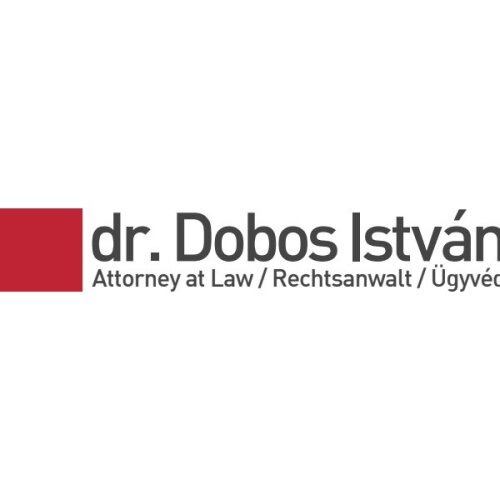Best Water Law Lawyers in Hungary
Share your needs with us, get contacted by law firms.
Free. Takes 2 min.
Or refine your search by selecting a city:
List of the best lawyers in Hungary
About Water Law in Hungary
Water law in Hungary is a specialized area of legal practice that deals with the regulation, use, protection, and management of water resources throughout the country. Hungary's legal framework for water is shaped by national legislation as well as European Union directives, with the aim of ensuring sustainable water usage, protecting natural habitats, and managing water-related risks such as flooding and pollution. Water law governs how individuals, companies, and public entities can access, use, and protect both surface and groundwater resources, and sets requirements for permits, quality standards, and water management activities.
Why You May Need a Lawyer
Legal matters involving water can be complex due to the intersection of public and private interests, environmental considerations, and strict regulatory requirements. You may need the assistance of a water law lawyer in scenarios such as:
- Securing permits for agricultural irrigation, industrial water use, or construction near water bodies.
- Resolving disputes over water rights and access between neighboring landowners or communities.
- Tackling issues related to pollution, contamination, or alleged breaches of water quality regulations.
- Managing the legal consequences of flooding or drought, including claims for damages or preventive measures.
- Navigating compliance requirements for wastewater management or stormwater run-off from business operations.
- Working with government agencies on water management projects, zoning, or restoration of natural water habitats.
A water law expert can offer guidance, negotiate on your behalf, prepare documentation, and represent you in administrative or judicial proceedings related to water use and protection.
Local Laws Overview
Hungary’s water law system is based principally on the Water Management Act (Act LVII of 1995), which is implemented and supplemented by various governmental decrees and local ordinances. Key aspects include:
- Water Permitting: Any significant use of water such as abstraction, extraction, diversion, or discharge requires official permission from regulatory authorities.
- Water Rights: Water resources are state property; private or commercial use is granted through permits and is subject to public interest considerations.
- Quality Standards: Regulations establish strict criteria for water quality, especially for drinking water, bathing waters, and discharged effluent.
- Flood Management: There are comprehensive rules regarding flood risk assessment, protection measures, and responsibilities for both public bodies and private landowners.
- Compliance with EU Directives: Hungarian law has incorporated key EU directives such as the Water Framework Directive and the Urban Waste Water Directive, aligning national policy with broader European standards.
- Sanctions and Enforcement: Non-compliance can result in administrative penalties, fines, or even criminal liability in severe cases of pollution or environmental harm.
Frequently Asked Questions
What is the main law governing water management in Hungary?
The primary legislation is the Water Management Act (Act LVII of 1995), which outlines responsibilities, permit requirements, and the framework for water resource protection and management.
Do I need a permit to dig a well on my property?
Yes, in most cases any well construction, even for private household use, requires a permit from the relevant local water authority.
Can I use water from a nearby river for irrigation without permission?
No, using surface water for irrigation or any other purpose generally requires prior authorization from the appropriate government agency.
What should I do if my property is affected by flooding?
You should report the issue to local authorities and may have legal recourse to seek flood protection measures or claim compensation, depending on the circumstances.
Are there penalties for polluting water bodies?
Yes, polluting water resources is taken seriously under Hungarian law and can result in administrative fines, mandatory remediation, or criminal charges in severe cases.
Who is responsible for maintaining riverbanks and flood protections?
Responsibility is typically shared between public authorities (such as the National Directorate General for Water Management) and private landowners, depending on the location and type of water body.
How does Hungarian law address cross-border water management?
Hungary cooperates closely with neighboring countries and the European Union to manage transboundary water courses, prevent pollution, and solve disputes through international treaties and local legislation.
Is there financial support for water management or conservation projects?
Some government and EU programs provide financial assistance for water efficiency, conservation, wastewater treatment, and flood prevention projects.
What rights do I have if a neighboring activity is affecting my water supply?
You can seek legal remedies such as negotiations, complaints to the authorities, and eventually court proceedings if another party's activity unlawfully restricts or contaminates your water supply.
What is the process to apply for a water permit?
You must submit an application with detailed technical documentation to the relevant regional water directorate or authority, which will evaluate compliance with legal and environmental standards before granting the permit.
Additional Resources
- National Directorate General for Water Management (Országos Vízügyi Főigazgatóság - OVF) - The main government body supervising water management and policy implementation.
- Ministry of Interior’s Water Department (Belügyminisztérium Vízgyűjtő-gazdálkodási Főosztály) - Responsible for regulatory control and policy-making.
- Local Water Authorities (Vízgazdálkodási Hatóságok) - Regional offices handling permitting, enforcement, and local water issues.
- Hungarian Chamber of Engineers (Magyar Mérnöki Kamara) - Consult for technical expert advice related to water projects.
- Environmental Non-Governmental Organizations (NGOs) - Several NGOs provide information and advocacy on water protection and environmental justice.
Next Steps
If you require legal advice or assistance regarding water law issues in Hungary, consider taking the following steps:
- Identify the specific nature of your issue, including any relevant documentation, permits, or correspondence.
- Contact a lawyer with expertise in environmental or water law matters, preferably one familiar with the regional authorities relevant to your case.
- Gather all available evidence or expert reports if the issue involves technical or scientific questions.
- Reach out to local water authorities or the National Directorate General for Water Management for initial guidance, as many issues can be resolved administratively.
- If you face an urgent problem (such as pollution or flood damage), seek immediate legal advice to ensure all necessary legal steps are taken in time.
- Consider mediation or out-of-court dispute resolution methods when appropriate, especially for neighbor or community based conflicts.
Securing knowledgeable legal representation is key in navigating the complexities of Hungarian water law, ensuring compliance, protecting your interests, and supporting sustainable water management.
Lawzana helps you find the best lawyers and law firms in Hungary through a curated and pre-screened list of qualified legal professionals. Our platform offers rankings and detailed profiles of attorneys and law firms, allowing you to compare based on practice areas, including Water Law, experience, and client feedback.
Each profile includes a description of the firm's areas of practice, client reviews, team members and partners, year of establishment, spoken languages, office locations, contact information, social media presence, and any published articles or resources. Most firms on our platform speak English and are experienced in both local and international legal matters.
Get a quote from top-rated law firms in Hungary — quickly, securely, and without unnecessary hassle.
Disclaimer:
The information provided on this page is for general informational purposes only and does not constitute legal advice. While we strive to ensure the accuracy and relevance of the content, legal information may change over time, and interpretations of the law can vary. You should always consult with a qualified legal professional for advice specific to your situation.
We disclaim all liability for actions taken or not taken based on the content of this page. If you believe any information is incorrect or outdated, please contact us, and we will review and update it where appropriate.
Browse water law law firms by city in Hungary
Refine your search by selecting a city.

















